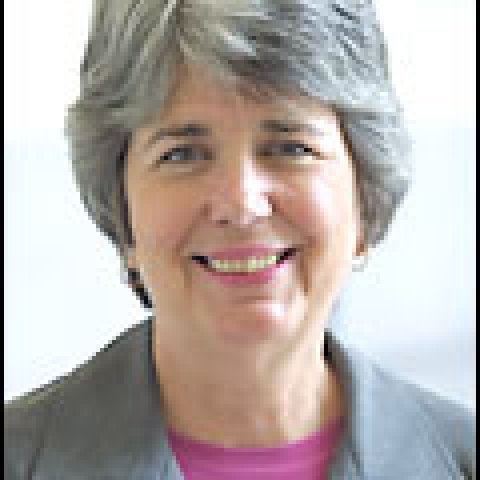Carolyn P Boyd
Former Fellow
Professional Affiliation
Professor of History, University of California, Irvine
Expert Bio
During 25 years at the University of Texas at Austin and in my current position as Professor of History at the University of California, Irvine, I have devoted my teaching and research to analyzing the interrelated processes of political and cultural modernization in Spain. Trained as a historian of modern Europe, I have tried to understand the historic weakness of democratic-civic culture in Spain and the difficult consolidation of a national, representative, liberal political system within a broadly comparative context. My interest in Spain first developed as a Stanford undergraduate, when I spent four months studying at the Universidad Complutense in Madrid. After graduation I spent two years on a Fulbright fellowship in Madrid and Barcelona, attending classes at the Complutense and researching anarchist education, a topic still politically taboo in Franquist Spain. Thereafter, I accepted an NDEA Title IV fellowship to study Spanish history at the University of Washington, where I wrote my dissertation on another politically sensitive subjectÑSpanish civil-military relations. The resulting book, Praetorian Politics in Liberal Spain, which was published in 1979, analyzed the political and social crisis that culminated in the destruction of the parliamentary monarchy by a military coup in 1923. Still the standard work on this crucial period, it was published in a revised and expanded Spanish translation in 1990. My interest in Spain's difficult path to modernity next led me to consider other sources of political instability--in particular, cultural conflict, education, and the problematic character of Spanish national identity. A fellowship from the American Council of Learned Societies permitted me to spend seven months in Spain conducting research on history teaching and textbooks in Spanish schools from the Restoration to the death of Francisco Franco in 1975. In Historia Patria, published in 1997, I showed how the structure of the Spanish educational system (which included a large Catholic sector hostile to the liberal state) shaped the way that children learned about the national past and how political and cultural conflicts over the meaning of Spanish history reflected larger disagreements on Spain's present and future course. Currently, intense debates in Spain on the place of "national" history in a multi-national state have created a substantial audience for the Spanish edition of this book. Whereas Historia Patria explored the transmission of national history through the schools, my new project focuses on other intentional "sites of memory"--in particular, commemorative monuments that were meant to serve as nodal points in the collective memory landscape. By visibly defining the contours of the past, competing groups sought to fix a national identity whose features were the object of bitter dispute. Much of the research on national identity and collective memory has focused on Western European nation-states, where a sense of nationhood served as an important element of political and social integration. With this study of cultural politics in Spain, I hope to provide a counter-example that may be more relevant to current nationalist conflicts around the world. In Spain, the politics of nationalism was pursued by groups competing for political and social power within the context of a weak state and an acutely divided society. Exclusionary definitions of national identity further exacerbated the cleavages in Spanish society that led ultimately to civil war. Analyzing the dynamics of this process will provide insight into similar processes at work in the contemporary world, where nationalist resentments are as often directed towards allegedly inassimilable groups inside the state (ethnic and religious minorities and immigrants) as toward external enemies.
Education
A.B. (1966), with highest honors, Phi Beta Kappa, Stanford University; M.A. (1969) and Ph.D. (1974) University of Washington
Experience
- Professor of History, University of California, Irvine, 1999-present
- General Secretary, Society for Spanish and Portuguese Historical Studies, 2000-04
- Instructor to Full Professor of History, University of Texas at Austin, 1973-99
- Associate Dean, Graduate Studies, University of Texas at Austin, 1986-88, 1990-92
- Associate Professor of History and Director of University Honors Program, University of Maryland, College Park, 1989-90
Expertise
Modern Spanish history; modern European history; nationalism; history of education; civil-military relations
Wilson Center Project
"Contesting the Nation: The Politics of Commemoration in Spain, 1820-1930"
Project Summary
My project will analyze secular and religious commemorative practices within the context of the larger struggle over national identity and values that destabilized Spanish political life through most of its modern history. Through four interrelated studies of public monuments, it will explore the contested nature of symbolic representations of Spanish nationhood, showing how the politics of memory reflected conflicts among Spanish elites over political and cultural modernization. More generally, this study will contribute to our understanding of nationalist politics in divided societies where exclusionary definitions of national identity justify discrimination or violence against internal "others" as well as foreign enemies or rivals.
Major Publications
- "The Second Battle of Covadonga: The Politics of Commemoration in Modern Spain." History and Memory, 2002
- Historia Patria: Politics, History and National Identity in Spain, 1875-1975. Princeton: Princeton University Press, 1997; Spanish ed., Barcelona, 2000
- Praetorian Politics in Liberal Spain. Chapel Hill: University of North Carolina Press, 1979; rev. Spanish ed., Madrid, 1990
